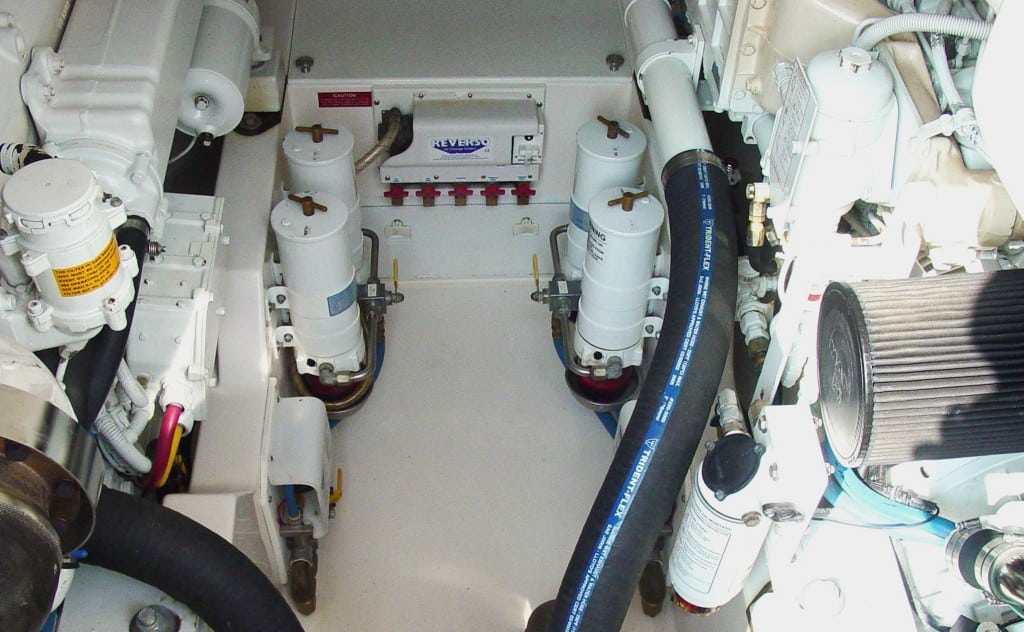Murder! Whodunit? YOU committed diesel engine murder!
The deed is done and it is murder most foul. Your loyal diesel engine has met an untimely end, but it wasn’t Colonel Mustard in the library with a Yeti paw or even Miss Scarlett in the foyer with a loofah. It was YOU who murdered your diesel! You cut it down in the prime of its life due to lack of maintenance. Let’s gather the world’s greatest detectives and sleuth through the clues at the scene of the crime to uncover the surprisingly simple ways you sent your engine to an early grave.
CLUE NO. 1: “It’s elementary, my dear Watson. You failed to change your oil.”
It doesn’t take a trip to 221B Baker Street to discover that regular oil changes are the single most important thing you can do to increase the life of your engine. Most engine manufacturers recommend oil changes every 100 hours (or annually, at a minimum).
Some manuals may allow for longer intervals, but more frequent oil changes are a better strategy to extend the life of the engine. It is certainly better than stretching out the period between them. This is particularly true for diesel engines, which tend to be harder on oil lubrication properties than gasoline engines (one reason many experts suggest the oil for diesels be changed every 50 hours of use rather than the 100 hours that are more commonly quoted).
CLUE NO. 2: “Read the smoke signals—six, two and even, over and out!”
Detective Dick Tracy doesn’t need a two-way wrist radio to communicate the cause of your engine’s demise—exhaust smoke is your diesel’s way of telling you what’s going on. Noticing the signs early can head off expensive repairs later. A well-maintained engine may smoke when initially cranked or while idling, but typically not while under load.
White smoke during start-up of a cold engine is normal, but it should clear up after the engine warms. If it continues, it’s normally an indication of unburned fuel. But it can also be a number of other issues, from water or air in the fuel to a faulty injector or injection pump. Black smoke upon startup is also common; however, its presence after the engine is at load signifies incomplete combustion. Possible causes include air intake or exhaust restrictions, compression problems and faulty or worn injectors.
Blue smoke means the engine is burning oil, which is also not uncommon at start-up. Continued smoking may mean trouble with valve guides and stems, worn piston rings or even failing turbo- supercharger oil seals.
CLUE NO. 3: “Observe, Number One Son—air filter
not replaced!”
You don’t have to be as smart as Charlie Chan to see a pattern here regarding routine maintenance. Even simple ones, such as maintaining your air filter, can make a big difference when it comes to increasing your engine’s service life. A clogged air filter not only affects fuel economy, but it can also cause your engine’s turbo (if so equipped) to spin faster in attempts to provide it with adequate airflow. Severe damage to valves, pistons and the turbo itself can occur if dirt and debris from a severely clogged air filter are ingested by your engine.
CLUE NO. 4: “Oh sir, just one more thing… you didn’t change your fuel filters.”
Columbo knows fuel filters always seem to clog at the worst possible moment, such as running a narrow inlet or when navigating a busy harbor. Causing your engine to shut down is bad enough, but it gets even worse. Clogged fuel filters can also damage injectors and injection pumps. Diesel fuel injection systems create a lot of heat and rely on unobstructed fuel fl ow to keep things cool. In extreme cases, excess pressure from a clogged filter can even cause filter damage, allowing a failed filter to dump contaminants directly into the injection system.
CLUE NO. 5: “You poisoned your engine, Monsieur!”
While not as exciting as Murder on the Orient Express, follow Hercule Poirot’s advice to use your “little gray cells,” and you’ll soon surmise that many marine diesel problems originate in the fuel tank. Not surprisingly for boats, water intrusion is a major source of diesel fuel woes. That deck fuel fi ll cap with the missing O-ring is a perfect path for water entry into the fuel tank during every wash down or rainstorm. Limited or seasonal use is also an issue when it comes to boat fuel. Despite the plethora of magic potions and elixirs sold to “kill bugs” or stabilize your fuel, diesel stored on board for long periods can still degrade or become contaminated due to microbial or
Despite the plethora of magic potions and elixirs sold to “kill bugs” or stabilize your fuel, diesel stored on board for long periods can still degrade or become contaminated due to microbial or bacterial growth. Dirty fuel can happen to anyone. If it happens to you, act swiftly to correct the issue, and be sure to maintain good fuel management practices to keep it from ever recurring.
Frank Lanier, Southern Boating
August 2017












